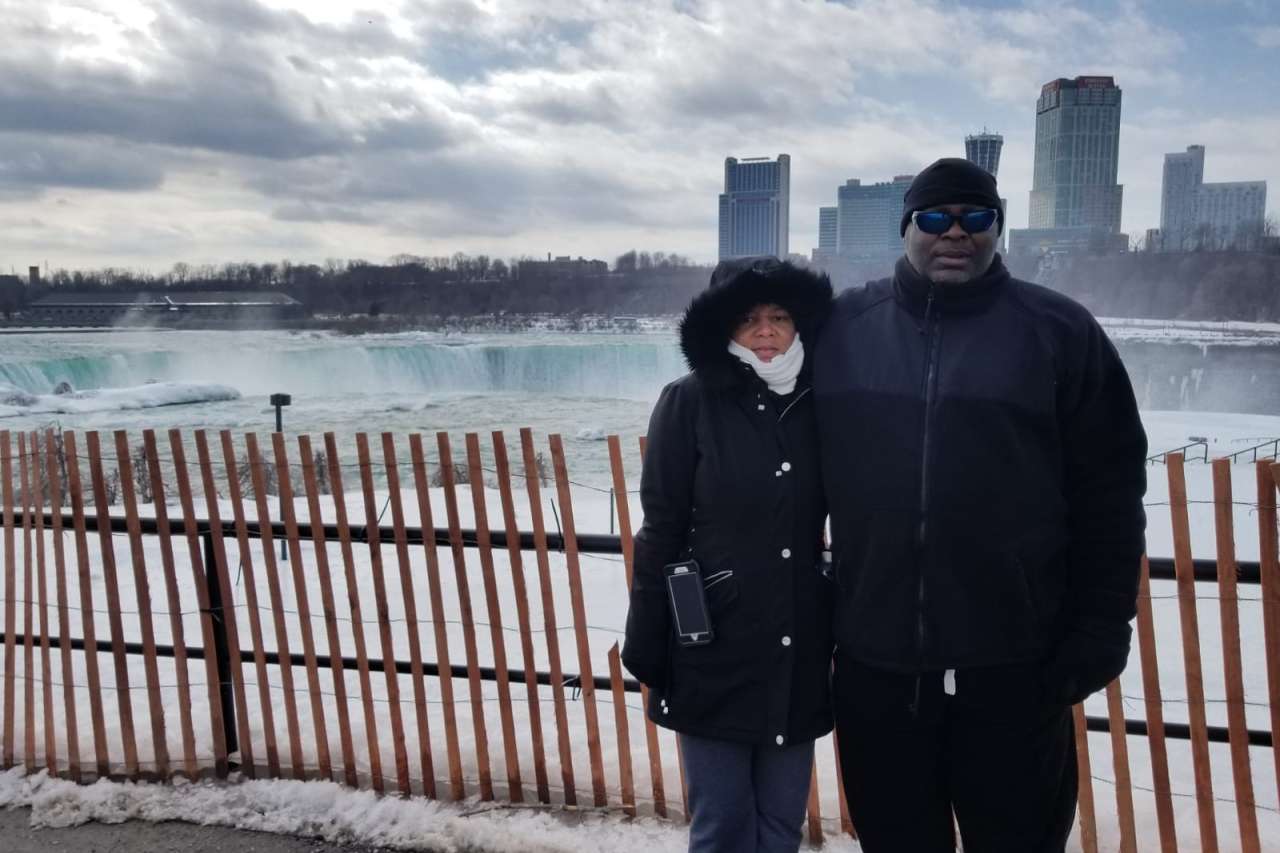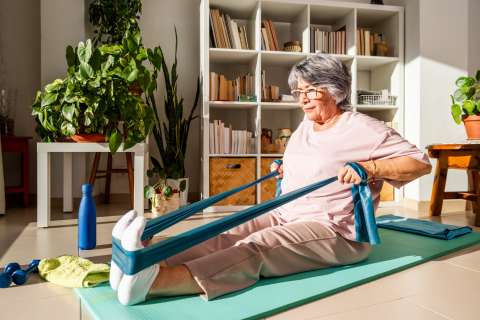In August 2008, Sgt. 1st Class (E-7) Anthony Mitchell — then 38 years old and serving as a U.S. Army infantry senior sergeant and team chief — was traveling with a convoy to the city of Gardez, Afghanistan, when an improvised explosive device tore through the patrol.
It started as a routine mission, Mitchell manning the gun turret on the rear vehicle, scanning the rural terrain for nearby threats.
Then, in an instant, two consecutive explosions destroyed the vehicle, hurtling his body backward and changing the course of his life forever.
“My head was exposed, and they were shooting, passing right by my head,” Mitchell recalls. “The ammo can pushed my body backwards into the turret and I was stuck like that — still fighting, directing Afghan soldiers with minimal ammo — and then I blacked out.”
When Mitchell — the sole survivor from his vehicle — regained consciousness, he was in a hospital in Germany, where he was greeted by a military chaplain.
“Just a few moments ago, you weren’t with us,” Mitchell recalls the chaplain saying, as he offered him a small care package marked with the words: “Wounded Warrior Project.”
Mitchell did not know it yet, but that care package would soon introduce him to a decades-long journey with UCLA Health Operation Mend and the Wounded Warrior Project, offering him healing and hope.
A partnership of commitment
Mitchell is one of more than 1,200 warriors who have received life-changing care through UCLA Health Operation Mend — the only program in the nation dedicated to providing free specialized surgical and psychological treatment for post-9/11 veterans and their families.
In July 2025, Operation Mend celebrated a decade of partnership with the Wounded Warrior Project and the Warrior Care Network, alongside health care programs for veterans at Massachusetts General Hospital, Emory Healthcare and Rush University.
“When the Wounded Warrior Project invited Operation Mend to have our first conversations about building a network, all four academic medical centers and the Wounded Warrior Project leadership came together, and we committed to a level of collaboration unlike anything we had seen before,” says Jo Sornborger, PsyD, executive director of UCLA Health Operation Mend. “This translated into us building a network, setting our egos aside, and creating the best practices that we could commit to our warriors — and that has grown substantially in breadth and depth over the past 10 years.”
Today, the Warrior Care Network partnership has provided care to more than 6,000 warriors, improving access to physical and mental health treatment nationwide.
“One of the hallmarks of our program at Operation Mend is that we make sure that all warriors have access to care,” says Dr. Sornborger. “Many warriors have told our team that, for the very first time, we’ve offered them hope — something they haven’t experienced before. And so, the trust that we’ve developed is phenomenal.”
Mitchell’s journey to recovery
Before coming to UCLA Health, Mitchell had undergone 37 surgeries, including a left knee replacement and multiple failed right-knee replacements that led to amputation and a prosthetic leg. He also endured a spinal cord injury, traumatic brain injury, sciatica in both legs, loss of sensation in his hands and feet, and the loss of his gallbladder from a laceration caused by the turret crank.
But when Mitchell and Jocelyn — his wife and primary caregiver — eventually joined Operation Mend for care in January 2019, they were quickly encouraged by the compassion and support of their care team.
“I got to UCLA, and for the first time, I sat down with somebody who actually made sense of what was going on,” says Mitchell. “It just put me on my knees. It really humbled me that there are people out there who care because when you come here, the doctors engage you.”

Since joining Operation Mend, Mitchell has received eight life-changing surgeries, including bilateral shoulder rotator cuff and meniscus repairs, bicep injections, and carpal tunnel procedures on both hands and wrists. Mitchell and his wife — high school sweethearts now married for 32 years — also participated in Operation Mend’s intensive PTSD treatment program.
Through every step of his treatment, Mitchell says, he has been deeply involved in his care plan, highlighting the team’s openness, expertise and emphasis on communication. He especially appreciates their attentiveness and compassion for the warrior community.
“The pace has slowed down, but the progress has sped up since I’ve been here,” says Mitchell. “Everything the doctors said they would do, they have done — and done it well. I have benefited from every surgery, whether it be incremental or not, and it’s helped me live a better life. I’m forever appreciative of that, and so is my family.”
More than physical healing, the program has helped Mitchell reconnect emotionally, transforming his outlook on life.
“I was never really good about speaking on my emotions. Being a drill sergeant, I kind of had a gruff approach,” explains Mitchell. “So, after coming here and doing the initial assessment, UCLA Health did more for me in three days than I had accomplished in the past 10 years … I had to adopt that same kindness, get out of my shell, and be more of a listener.”
“It wasn’t just me coming in for surgery and then going home,” he says. “I went as an individual and came back as a family member.”
Moving forward and helping others
As Operation Mend and the Wounded Warrior Project continue to grow their partnership, Mitchell encourages fellow warriors to reach out for help and take advantage of resources.
“There is nothing to be embarrassed about. There is nothing to be afraid of. Put your whole heart into it and use your best intentions,” he says. “As much as this was a repair, it was also a tool — I didn’t feel like I was in the world by myself anymore.”
As a father to one son, a fellow Army veteran, Mitchell also emphasizes the importance of including family members and caregivers in the healing process.
“Your family will heal with you,” says Mitchell. “Operation Mend has the tools for every issue, for every situation. You just have to apply yourself, show up and be willing to participate.”
Dr. Sornborger agrees. “It is worth putting your trust into the Warrior Care Network,” she says. “The gift that warriors give to us is their trust, and we do not take that lightly. We know what it takes to come to one of our medical centers and share their experience, psychological injuries and trauma. That takes a tremendous amount of courage, and it is worth it.”
And that deep sense of care stems from the unwavering compassion of both the Operation Mend and Wounded Warrior Project teams.
“The amount of dedication and respect that our teams have for our warriors is so consistent and so deep — and that to me is extraordinary,” says Dr. Sornborger. “The entire team is dedicated to our mission to serve warriors and caregivers with support, joy, respect and honor.
“We always say, ‘Once a patient of Operation Mend, always a patient.’”
Mitchell shares that sentiment wholeheartedly.
“I can say with a smile on my face that this change of mindset has opened many doors, and I have Operation Mend to thank for that. You’re not a lost cause — you just have to use the right tools,” he says. “And I am so proud of the team members who have made themselves available as true patriots to take care of those who serve well.”




